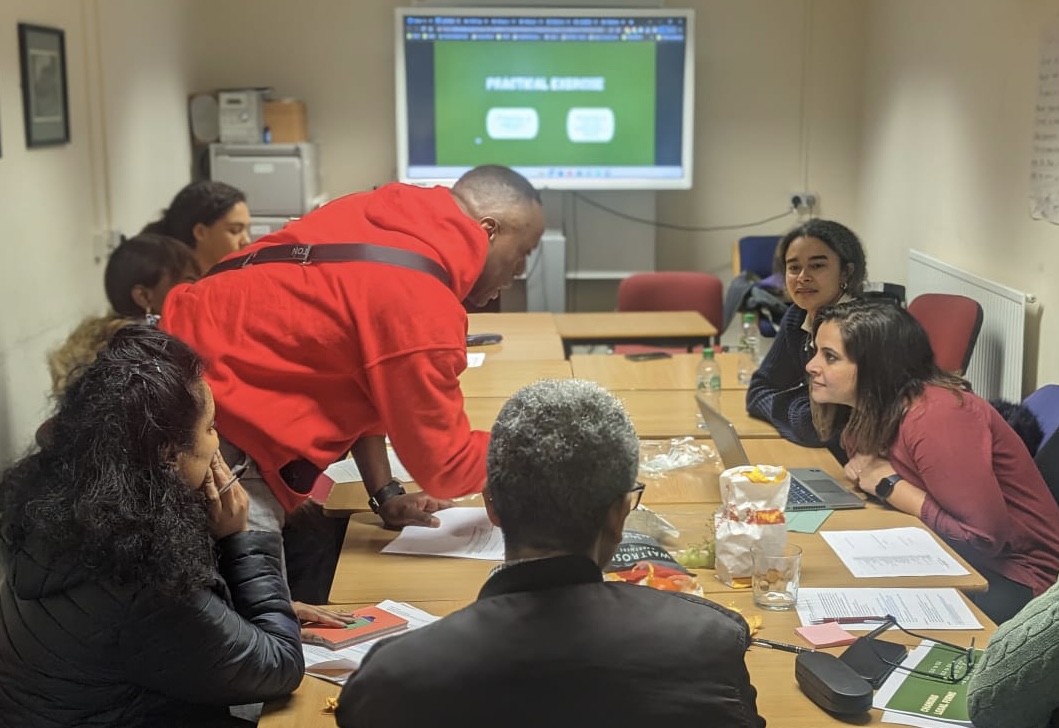
Community organisers have been central to every social justice movement in history. Community lawyers collaborate with community organisers to build the legal infrastructure that supports their goals.
Why we’re rethinking legal support
Community organisers have been central to every social justice movement in history. But legal support for community groups and grassroots organisations is insufficient or inaccessible. Law Centres are overstretched from successive cut-backs to legal aid, pro bono models aren’t designed to embed support for community organisations and lawyers aren’t necessarily trained to work as allies rather than advisors. There’s a fundamental misalignment between the legal support community organisations need, and the legal support that lawyers are able to provide.
We want to change this and re-think how legal support is accessed and delivered. We think movements need lawyers and legal practitioners with the skill and knowhow to support organising for social change.
What informs our approach to legal support
During 2022 and 2023, Sistren Legal Collective conducted qualitative research with activists, community leaders and founders of non-profit organisations from across the UK to explore the barriers to accessing legal support in organisations which are led by and for Black, Asian, refugee, migrant/immigrant and other minoritised communities.
This research has been an important step in understanding the barriers – beyond cost and networks – to accessing legal support, including for instance trust, power and language. We’ve engaged in an active process of learning what the legal needs of communities are as they grow and scale their work and unlearning our own assumptions.
Adopting a community centred approach to our research and work informs our approach to legal support. We centre the voices and lived experience of the communities we collaborate with and in the work we do.
Beyond the communities we work with, our own varied identities, which are often context dependent – including ‘Black British’, ‘Indian’, ‘migrant’, ‘mixed heritage’, ‘women’, ‘people of colour’ – inform our work. Lawyers are often expected to leave their complex identities at the door to take on monotonal roles as ‘solicitors’ or ‘professional advisors’. But, our identities and histories fundamentally inform the people we are, the lawyers we want to be and our approaches to legal support. We’re trying to create ways for us as people to bring our lived experiences into our legal practice.
A note on terminology: We appreciate many people don’t identify with the terminology that we identify with. You may prefer to use different terminology, or you may not feel the need to identify with labels of any kind. We invite you to self-identify in whatever way makes you most comfortable and acknowledge that terms we use for ourselves and identify with may well change over time.
What community lawyering means to us
Community lawyering isn’t just about who we work with, it’s also fundamentally about how we think about our work: the ways in which we listen to clients and collaborators, the ways in which we as lawyers choose to self-reflect, analyse, and be aware of our own power and our limitations, how we define success and how we articulate our role within movements for social change.
We are decisively not a law firm and we actively avoid traditional lawyer-client relationships. Instead, we see our roles as lawyers to collaborate with those who should be driving conversations around the changes they want within their communities and in the world around us. We value our collaborators’ informed judgment and recognise the expertise and skill they bring to our partnership.
We work with our collaborators to deploy our skills and knowledge in support of their work, and actively work to redistribute our knowledge so that communities can access the resources and knowledge they need for their work beyond their relationship with us.
